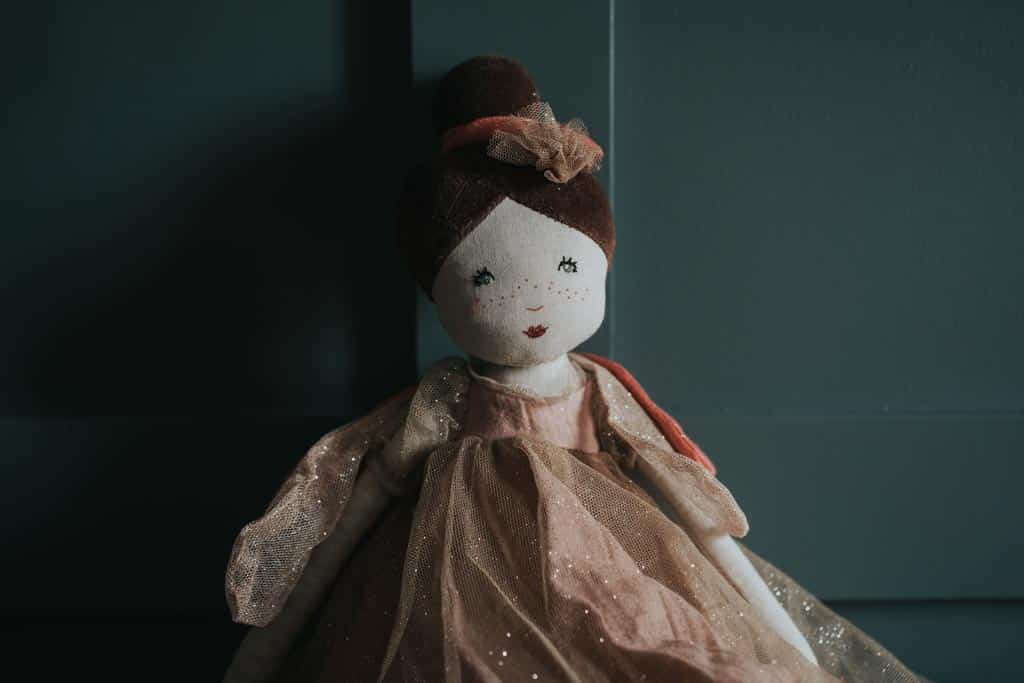Puppet play is not just an amusing game for your little ones. It’s a powerful developmental learning tool that offers a multitude of cognitive, emotional, and social benefits for preschoolers.
We’ll take a look at how puppet play can not only foster a better sense of empathy and self-expression, but also enable children to be better communicators.
Boosting Cognitive Development Through Puppet Play
Puppet play is a fantastic way to stimulate your child’s cognitive development. When your child is engaging with puppets, they are also working on their cognitive abilities. They develop their problem-solving skills as they plan puppet performances, figuring out how the puppet should move and what it might say.
This requires logical thinking and decision-making abilities.
Puppet play also boosts working memory. It’s hard work remembering chunks of dialogue and matching them to the appropriate action.
Fostering Social and Emotional Development
Puppets are a great teaching aid, especially if you find it difficult to ‘teach’ your own child, or if your child feels inhibited, or disengaged. A puppet brings another personality to the situation, often a comical one, who can act as a buffer between parent/teacher and child. Puppet play supports literacy development, since they can sing and laugh and interact with the child in a way that engages them. They can also be great confidence-building tools, as children talk in front of others and assert themselves towards a puppet more readily than they would an adult.
The social and emotional development of children is crucial, and puppet play offers an easy and enjoyable way to promote it. Through puppet play, your child can express their emotions and learn about social interactions.
For instance, they can use puppets to demonstrate feelings such as happiness, sadness, anger, or excitement. This not only helps them understand their own emotions but also allows them to learn about empathy and other people’s feelings.
Moreover, puppet play aids in emotional regulation. Children can use puppets to act out challenging situations or express their feelings, facilitating emotional awareness. They learn to recognise, understand, and manage their emotions, a vital skill that will help them throughout their lives.
Language Skills
Puppet play is also instrumental in developing language skills. It provides a platform for imaginative storytelling and role-playing, allowing your child to practice and enhance their language abilities.
When they create dialogues or act out scenarios using puppets, they experiment with new words and phrases, improving their vocabulary. They also practice sentence structure and conversation skills, vital for their future academic success and social relationships.

Nurturing Creativity and Imagination
If you want to nurture creativity and imagination in your child, puppet play is your go-to activity. It stimulates creativity as your child invents unique characters, creates storylines, and brings their imaginative ideas to life.
Children are free to make their puppet act, speak, and behave as they wish, giving a real sense of gravity and purpose to their imagination.
In addition to stimulating creativity, puppet play fosters flexible thinking and problem-solving. As they manipulate puppets to create a story, they learn to think from different perspectives. This enhances their ability to adapt and find solutions to problems—a valuable skill in their day-to-day life and future.
Enhancing Fine Motor Skills and Focus
Puppet play is a fun way to help your child develop their fine motor skills and dexterity. The act of manipulating puppets involves careful and precise finger movements, which help to strengthen these vital skills.
Whether they’re moving the puppet’s mouth or making its limbs dance, your child is enhancing their hand-eye coordination and fine motor control.
Not only that, but puppet play also has a wonderful impact on attention and focus. The allure of bringing puppets to life encourages children to engage in focused and sustained play.
As they develop intricate narratives or manipulate the puppets, they’re honing their ability to concentrate and stay engaged in a task, a skill that will only work to benefit them academically throughout their life.
Tool for Confidence Building and Self Expression
Puppet play also aids in building self-confidence and self-expression. It offers a safe space for your child to express themselves freely, overcoming shyness or self-consciousness.
As they voice different characters and create stories, they gain confidence in their abilities, laying the foundation for strong self-esteem.
Cultural Awareness and Understanding Through Puppet Play
Puppets are a fantastic way to introduce your child to diverse cultures, traditions, and perspectives. You can use different character puppets to teach them about different customs, languages, and stories from around the world.
Through puppet play, your child can gain a greater understanding and appreciation of multiculturalism.

Developing Storytelling and Literacy Skills with Puppet Play
Puppet play is a great way to foster storytelling and literacy skills in your child.
Using puppets to narrate or retell timeless stories can enhance their understanding of narrative structure and sequential storytelling. It also promotes reading and oral comprehension, making them better listeners and readers.
Retelling Traditional Tales through Puppet Play
Fairy tales offer a rich source of inspiration for puppet play. They’re suitable for children, and often have some sort of moral underpinning, combined with fantastical elements or magical realism.
Classic fairy tales such as ‘Cinderella’, ‘Little Red Riding Hood’, ‘The Three Little Pigs’, and ‘Goldilocks and the Three Bears’ are all timeless and can provide the basis for expanding your child’s sense of storytelling.
These tales also have limited characters, making it easier for your child to stage puppet plays, without worrying about designing dozens of puppets beforehand. Each one offers exciting opportunities for your child to engage their creativity and connect to symbolic characters.
Crafting Your Own Puppets
Making homemade puppets is a wonderful creative activity for your child. It’s not only cost-effective but also offers a unique opportunity to unleash their creativity. It would also be quite costly to buy a range of puppets or figures that cover all possibilities of your child’s imagination.
Your child can easily use everyday materials like old socks, paper bags, plastic spoons, paper plates, or even recyclable materials to make their own puppets.
Let your child decorate their puppet with felt, buttons, yarn, or fabric markers.
They could create hand puppets, finger puppets, spoon puppets, sock puppets, or stick puppets. The important thing is to involve your child in the puppet-making process as much as possible, allowing them to make choices and enjoy their creations.
Remember, the more they love their puppets, the more they’ll be encouraged to use them for play. It’s important for preschoolers and young children to be as involved in the developmental process (puppet making) as possible. Self-expression is part of the power of puppet play, as a form of both symbolic play and imaginative play.
Make Your Own Puppet Theatre
Having a special stage for puppet performances can take puppet play to the next level.
It provides a designated space for your child’s puppet shows, fostering an inventive atmosphere of imagination and drama.
But, you don’t need to invest in a professional puppet theatre—you can just as easily create one at home using a simple cardboard box.
First, find a large enough box that your child can comfortably sit behind. Then, cut a square or rectangular hole on one side for the stage. Ensure the opening is at the right height for your child to operate their puppets.
For a more authentic theatrical look, you can paint the box and add curtains made from fabric scraps. This new puppet theatre will serve as a backdrop for countless stories and scenarios that your child’s imagination can dream up.
Read more about making your own puppet theatre.
Conclusion
Incorporating puppet play into your child’s routine offers a rich and multi-dimensional learning experience that ignites their imagination, fosters language development, promotes social-emotional growth, and much more.
The joyous and creative nature of puppet play, from the initial creation of the puppets to the eventual performance, makes it an enjoyable and valuable activity for your little one.
By then, your child will be a seasoned puppeteer ready to take their puppet shows to the next level. Puppet play truly is a world of fun and learning waiting to be explored—and can be an independent activity or shared one—between parent and child.

